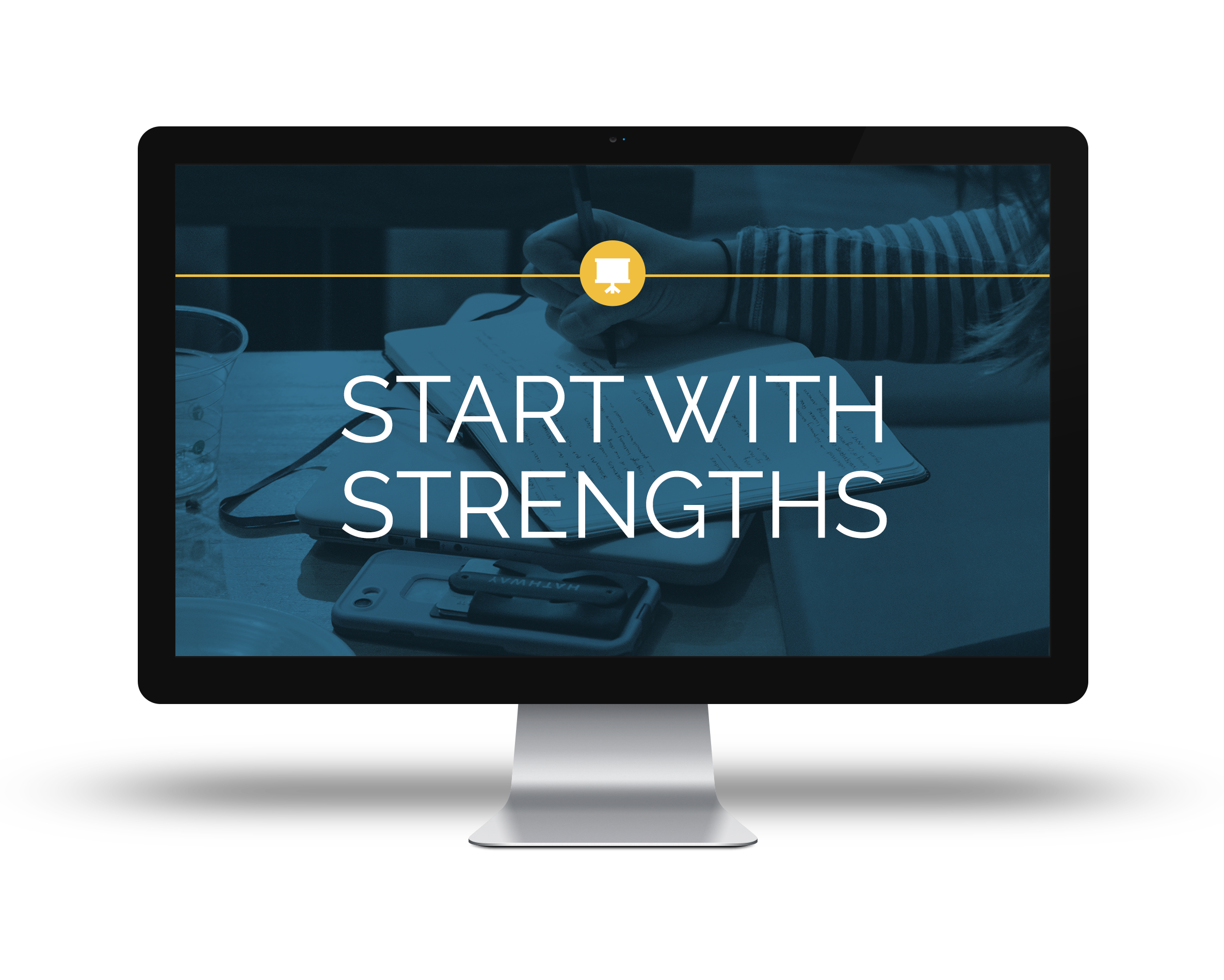Kindness came easily for my dad. It was one of his top character strengths and he expressed it effortlessly. One of my earliest lessons on living a life with meaning came from him. His words were fresh on my mind as I recently celebrated his life on the 11th anniversary of his death from Lewy’s Body dementia. He was a businessman and philanthropist, though he never would have identified as such. His approach to “doing good” was as practical and logical as you’d expect from an actuary. He said, “When you have a chance to help someone, and it’s easy for you to do...just do it.”
After years of hearing this every time I saw him writing a check, explaining why he believed in donating anonymously, or every time he advised me on how to—as he might say, “not to be an asshole”—I internalized it. And his words have probably been the single piece of advice that most contributed to my own sense of purpose in life. In the hardest times of my life, I can always find meaning in looking for small ways to practice kindness.
But this post isn’t just about my dad. It’s about how each of us can imbue our lives with meaning—and how doing so will make us healthier, wealthier, and more effective in what we set out to do.
The Science Behind Purpose
Individuals with a strong sense of purpose tend to live longer, have healthier hearts, and are more psychologically resilient.
Work can be a great source of meaning, which may explain why retiring early is associated with reduced longevity and a higher risk of dementia. This evidence also shows why we need a sense of purpose that transcends work, so we don't decompensate when our jobs shift, when we take leave, or when we retire. A sense of meaning in one’s work also benefits organizations as employees with a strong sense of purpose work harder and stay longer.
Professor Victor Strecher, author of Life on Purpose, had to say goodbye far too early to his daughter Julia. She died at age 19 from a rare form of heart failure. The enormity of his grief led him to immerse himself in the study of what makes life worth living. His answer? A sense of purpose. Here’s something he wrote that encapsulates what he discovered in his research:
So let’s imagine a drug that was shown to add years to your life; reduce the risk of heart attack and stroke; cut your risk of Alzheimer’s disease by more than half; help you relax during the day and sleep better at night; double your chances of staying drug- and alcohol-free after treatment; activate your natural killer cells; diminish your inflammatory cells; increase your good cholesterol; and repair your DNA. What if this imaginary drug reduced hospital stays so much that it put a dent in the national health-care crisis? Oh, and as a bonus, gave you better sex? The pharmaceutical company who made the drug would be worth billions. The inventors of the drug would receive Nobel Prizes and have institutes named for them! But it’s not a drug. It’s purpose. And it’s free.
The Meaning Gap
Purpose may be simple, and it’s certainly free, but that doesn’t mean it always feels easy to come by.
One of the greatest gaps I see related to purpose is a vast divide between what we want and how we act. We long for a purposeful life, yet we spend our days thinking thoughts and practicing behaviors that don’t enhance our sense of meaning.
Part of this gap is due to the fact that we assume purpose is something we fall into, like a puddle in the road. We also buy into the myth that purpose must be grand and all-consuming.
But purpose isn’t something that happens to us. It’s something we can consciously cultivate. And very often it’s much more simple than we think. When my father reached the later stages of dementia, so much of what defined him fell away—his brilliance, his business, his memory, and even his home, as he eventually needed the 24/7 support of assisted living. But his strength of kindness remained. In the end, it was kindness that defined his legacy and inspired others.
11 Ways to Invite A Greater Sense of Meaning Into Your Life
Meaning is subjective — my purposeful path may differ from yours. Try out the following tips, using your highest character strengths to prioritize which feels most helpful for you!
Look for opportunities to practice kindness. Some of my most deeply meaningful accomplishments came from following my dad’s advice: "When you have a chance to help someone, and it’s easy for you to do...just do it." This can be as simple as write a LinkedIn testimonial or texting a friend who is struggling.
Identify your values. One way to think of purpose is putting your energy towards that which matters most. Doing this consciously requires recognizing that which matters most to you.
Write a list of the ways large and small your work has benefited others. In one study, Professor Adam Grant brought a scholarship beneficiary to speak for five minutes to a group of employees at a university fundraising call center and the benefits were astounding. One month later, those employees raised 171 percent more money and spent 142 percent more time on the phone than their peers. Recognizing the ways your work benefits others is a powerful motivator. Positive impact can be as simple as brightening a colleague’s day.
Are curiosity and/or social intelligence your top character strengths? Ask someone a question, and really listen to the answer. The simple act of listening makes others feel valued and boosts our sense of connection. Our relationships provide a great source of meaning in life, and social connection also happens to be correlated with longevity.
Look for meaningful moments. Living with purpose doesn’t require big, Instagram-worthy actions, nor is it only accessible to those of us with a dream job that feels like a calling. Purpose can be felt in the simpler moments, which, when woven together, create a meaningful tapestry of a life worth living. Here's how:
- Similar to the way one might approach a gratitude list, take five minutes to jot down at least a few moments in your week that stood out (e.g., a positive conversation with a colleague, observing a beautiful sunset). You may find yourself with many more than you would have guessed.
Be the best version of yourself more often. When is the last time you really felt like yourself? Think back to this time. What were you doing? What character strengths were shining through? What people or things allowed you to really show up as you? Acting as the best version of ourselves brings on a feeling of being the person we are meant to be, which can make us feel in alignment with our overall sense of purpose.
Breathe. A greater sense of meaning can be found, literally, right under our nose. Mindfulness, which renowned teacher and researcher Jon Kabat Zinn defines as paying attention to the present moment on purpose, trains us to intentionally guide our focus. As a result, it enables us to quiet the unhelpful noise in our brains, and place our energy towards that which matters most. Here’s a very simple practice to get started (also check out the countless resources freely available online to find an approach that works for you):
- Sit in a comfortable position with your spine upright, either cross-legged or sitting in a chair with your feet flat on the ground. If it’s comfortable for you, close your eyes. Begin to tune into the rhythm of your breath. You can choose to observe it as it rises and falls from your face to your belly; or as it flows over the space between your upper lip and nostrils. Wherever you choose, stay consistent, following the breath with your mind's eye and felt sense. When you get distracted, and this is natural, simply bring your attention back to the breath. Continue for one minute, two minutes, or more. (Note: Even if you get distracted 100 times, that’s ok. The benefits of the practice come from noticing, without judgment, and simply redirecting your attention, on purpose, again and again.)
Get outside. Using appreciation of beauty and excellence to feel a sense of awe in the world around us, whether it’s from watching an act of “moral beauty” or encountering the beauty of nature, can ignite a sense of purpose. Research shows that time in nature is one of the best ways to experience awe.
Find your “go-to” purpose amplifiers. We can all find one or two actions that have a high success rate of enhancing our sense that life is meaningful. It’s so helpful to have these when we hit hard times, or when we feel our purpose waning. My “go-tos” are small acts of kindness and hiking in my favorite park. What are yours?
Change your iPhone wallpaper. On average, we look at our phones 46 times per day—the number creeps to 76 times per day for adults aged 18-24. Leverage this by making your wallpaper a photo of something that reminds you of what matters. What you value most is personal. It can be a photo of a special place, special person, or even a screenshot of a quote.
Get support. We are wired to learn and grow in connection with others. Purpose is not something we have to go at alone. Whether you are struggling to find meaning in your life, or whether you want to amplify an already existing sense of purpose, there are many poised to help you. From religious and spiritual leaders to professional leadership coaches, to psychologists, don't hesitate to seek support. As a leader, ensure your team has access to support and development opportunities.
As we see in the research, a sense of purpose is not just nice to have. It's a potent resource for quality of life, health, and impact.


